Estimated reading time 11 minutes, 57 seconds.
Pilots Kim McCully and Cristalle Fairbank didn’t get into aviation by following in the footsteps of a family member, like many do. Instead, they both ended up at the flight controls by matters of fate; now, they work together at Red Deer, Alberta-based Air Spray helping to control wildfires in Western Canada. In fact, McCully and Fairbank flew as an all-female airtanker team in an Air Spray Lockheed L188 Electra during the 2022 fire season.
“I love the thrill of it… getting in and blasting off into the air,” said Fairbank, who is a captain on the Electra. “To have found a career where you can actually help people at the same time… there’s nothing better. And we get to work with some pretty great people.”
“Most times when we go out, we are actually making an impact — helping, or at least seeing if we can help, with a fire,” added McCully. “It’s nice to feel useful.”
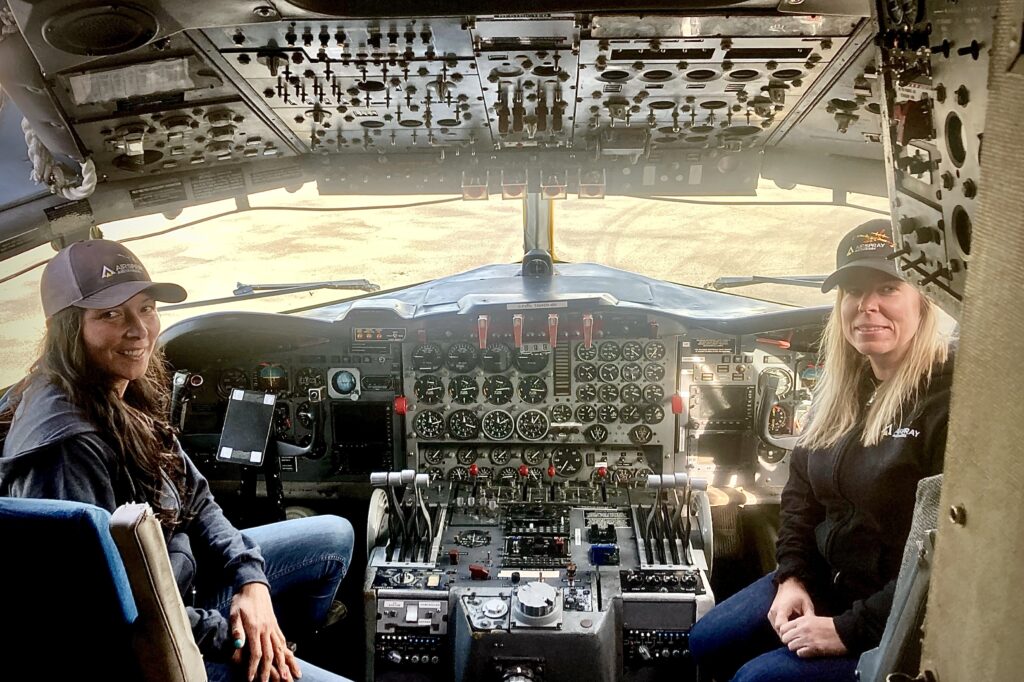
This year is significant for McCully, as she’ll be upgrading to captain.
Training has already begun to prepare for the 2023 fire season, which typically starts in April and fizzles out in late October. For McCully, the typical pre-fire season training looks a little different.
“I have two weeks of ground school, which we currently are doing online. After that, I will do about a week-and-a-half in the simulator, then eight hours in the aircraft, then a flight test, and then I’ll be ready to go for the season,” she explained.
Air Spray operates a fleet of L188 Electras, Twin Commander 690 and Commander 1000 birddogs, and the BAE 146 airtanker, among other aircraft. (The company also operates CL-215 and CL-415 scoopers on behalf of the Manitoba government, and has brought CL-215Ts into Alberta.) Every spring, the Electra and birddog pilots are assigned a contract where they are placed with an aircraft and a group — operating in either Alberta, British Columbia, or Yukon. The majority of the contracts are 123 days, with one 90-day contract, and the locations can change based on fire hazards, explained Fairbank.
This year, Fairbank won’t be assigned a specific contract, as she’s part of what is called the “relief crew.”
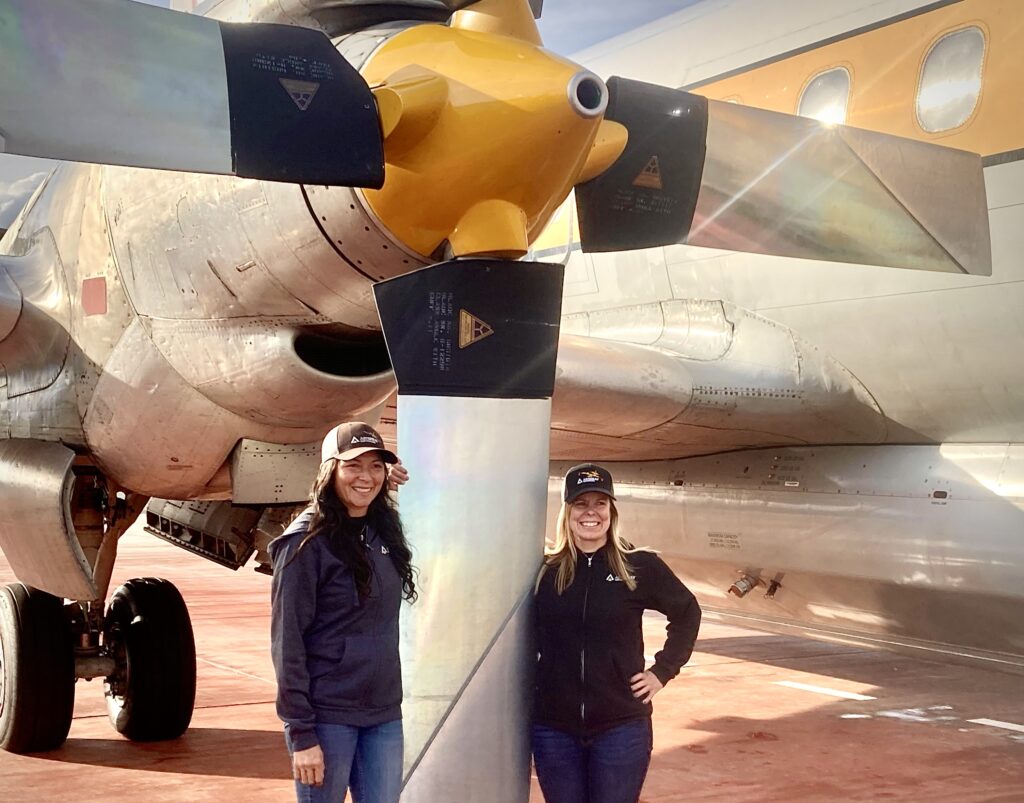
“Essentially, we give other pilots days off,” she said. “So, we’ll be going to B.C., Alberta, and Yukon, spelling people off for five days at a time. We then get a travel day and go to a different location for five more days.”
McCully, on the other hand, is to be based in Prince George, B.C., this summer “with one of our captains who trains the new captains. . . . But who knows, there could be some type of scenario that ends up with Cristalle and I paired together again,” she said.
From the Field
Fire control missions for Air Spray pilots vary depending on where they’re based. In the southern regions of Alberta or B.C., most flights are fairly short due to the nature of where fires typically start in those areas. Whereas with aircraft that are based further north, in locations like Fort McMurray or Prince George, crews “can fly for over an hour to even get to a fire,” said McCully.
“Some fires you get called out to are really small, and those would be initial attack sort of scenarios where your goal is to surround the fire and even potentially put it out,” she added. “Then there are the fires that are quite large and make the news; those fires are more of a longevity mission, so that ground firefighters can get in and do the work that they need to do. We might fly back to a fire multiple times in one day, or work on it for weeks.”
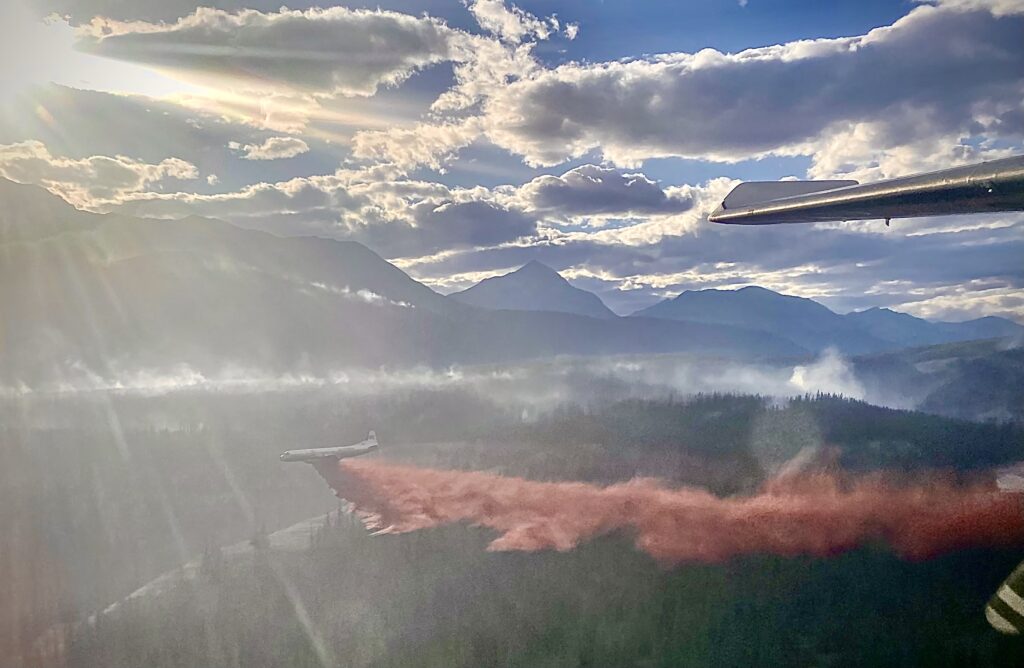
Fairbank recalled the 2017 fire season in B.C., which became one of the province’s worst wildfire seasons on record. Between April and November, over 1,300 fires burned more than 1.2 million hectares. The province declared a wildfire-related state of emergency for the first time in 14 years.
“Many communities were really affected by it, so it was amazing to see all the ground firefighters, the whole province, the military… everyone was out in full force,” said Fairbank.
Adding to the already challenging task of fire suppression is the fact that Western Canada is known for having extreme, mountainous terrain.
McCully said the most challenging environment she’s flown in was the Castlegar, B.C., area.
“It’s the most mountainous area that I’ve ever flown in,” she noted. “The captain that I was paired with was [Air Spray’s] former chief pilot, Neal Fix. I have to say, he was one of the best people that I could have been paired with because he knew the area so well. He was able to teach me the terrain, how to maneuver the airplane, and the dos and don’ts of operating in that kind of region.”
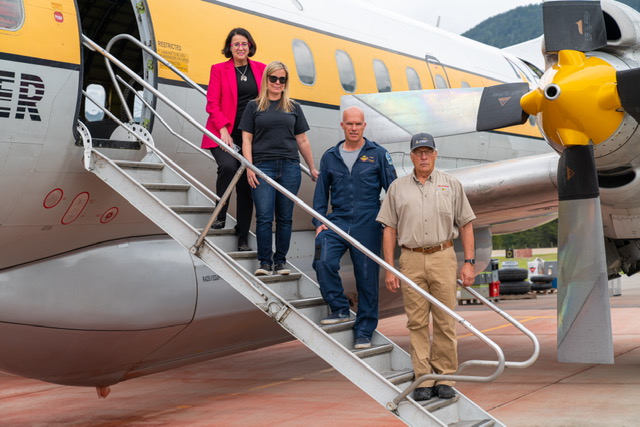
This year, after 38 years with Air Spray, Fix announced he is retiring from the company.
Time for Change
Today, McCully and Fairbank remain two of three female airtanker pilots at Air Spray. The pair say that while their experience at Air Spray has been quite positive, there is still work to be done to eradicate gender bias in aviation – and encourage more women to join the industry.
“Cristalle and I have talked about the gender imbalance a lot, and it’s really frustrating,” McCully told Skies. “It’s 2023. . . . No one raises an eyebrow if you get a male nurse, and many people often prefer to have a female doctor; why can’t it be the same with pilots?”
McCully shared a story where she experienced gender bias as a pilot, which she said has stuck with her through her aviation career.
“I was working for the UN flying in Africa, and I was on an all-female crew. We had a female engineer, a female flight attendant, a female captain, and I was the co-pilot. We landed on a gravel strip in the middle of nowhere to pick up army personnel, and the General kept asking where the man was. . . . He didn’t understand that women could operate machinery or fly airplanes because he’d never seen it before.
“He ultimately realized that his only way out was getting on that plane with an all-female crew. But you could tell when he was boarding the plane that he was genuinely scared.”
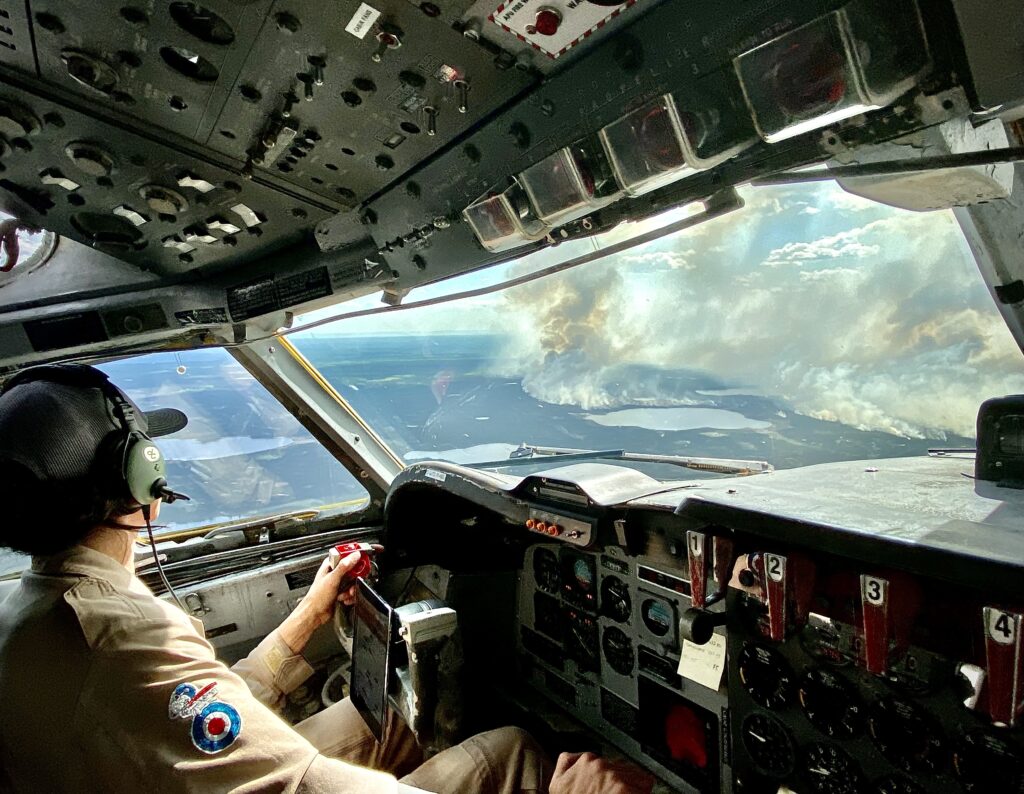
Fairbank said she’s hopeful for a world where “it’s normal to have females up front [in an aircraft].”
She added: “In the winter, I volunteer and fly for Angel Flight, and almost every flight there is someone who is surprised that I’m a pilot — or I get the comment, ‘I’ve never flown with a female pilot before.’ I look forward to the day when it’s not a special thing.”
Another common experience for women in aviation is that they are often assumed to be flight attendants. McCully and Fairbank want to see that change, especially for the next generation of aviators.
“Some of my best friends are flight attendants, but I just wish that wasn’t people’s first reaction,” shared McCully. “I think for little girls, it shouldn’t be their first reaction either. They should want to be up front in the cockpit — in charge and planning their own adventure.”
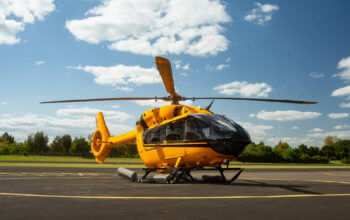
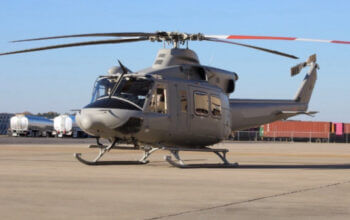
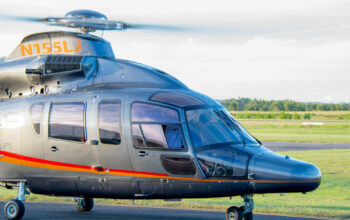
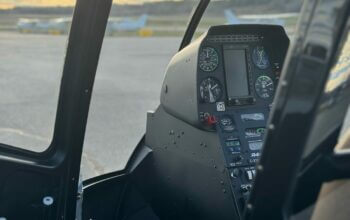
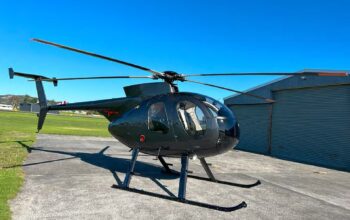
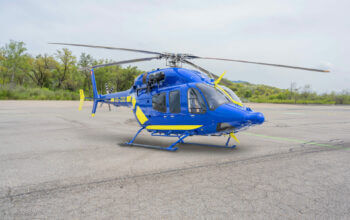
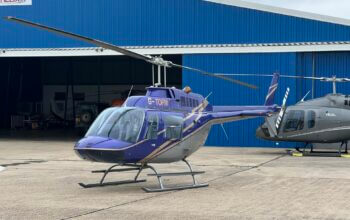
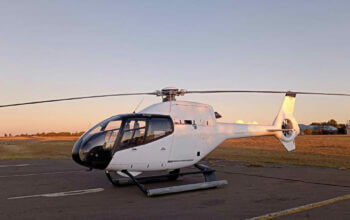

Good news story here. Air Spray is a first class professional company.
Merit not gender